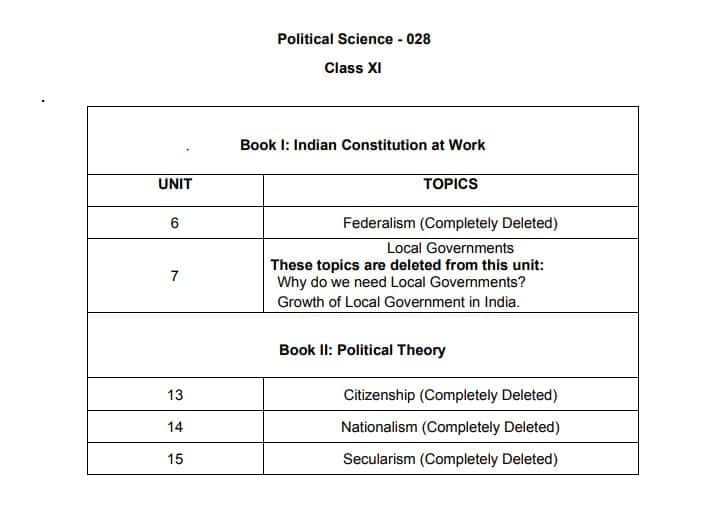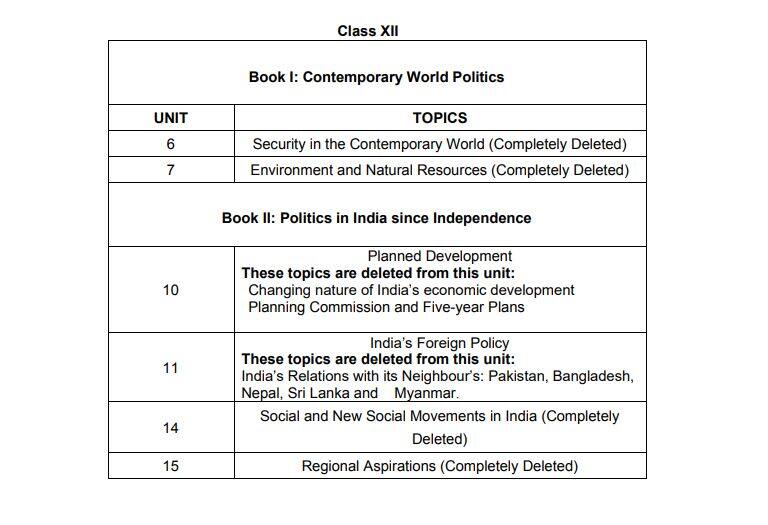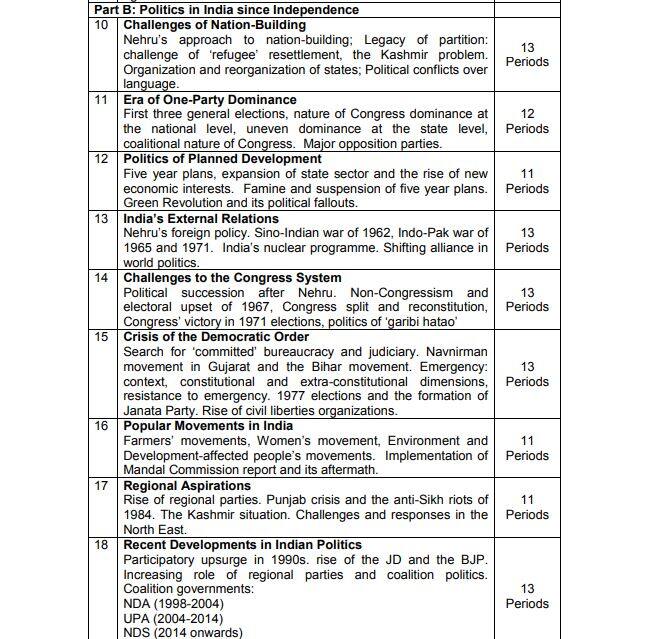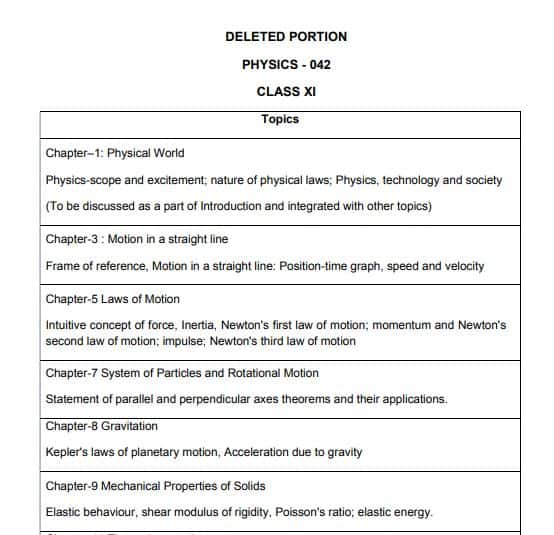



The coronavirus pandemic has been on a rampage for over four months in India, taking a toll on multiple sectors of the Indian economy.
While for some sectors showed immediate symptoms, others were diagnosed later, or were pre-symptomatic, so to speak.
One such sector is Education, which has been on a topsy-turvy ride – from children waking up early, dressing up in smart uniforms, going to schools and attending classes after a morning assembly in pre-COVID times, to children now making a reluctant journey in their pajamas from their bed to their tables, where parents are struggling to get connectivity and join an online session with 30 other students.
Not only is the paradigm shift from offline to online jarring for students and teachers alike, it is a challenge to keep up with a curriculum, which was designed for an in-person class experience.
Taking cognizance that a wholesome syllabus would be difficult to keep pace with, the Central Board of Secondary Education announced a 30 percent reduction, or “rationalisation” as the HRD Ministry termed it, for classes 9 to 12.
While making the announcement, Union HRD Minister Ramesh Pokhriyal had said, “Looking at the extraordinary situation prevailing in the country and the world, CBSE was advised to revise the curriculum and reduce course load for the students of classes 9 to 12.”
“To aid the decision, a few weeks back I also invited suggestions from all educationists on the reduction of syllabus for students and I am glad to share that we received more than 1.5K suggestions. Thank you, everyone, for the overwhelming response,” Nishank had tweeted.
On the surface, the step was welcome; however the devil lay in the details. Let’s attempt to understand the stop-gap measure and if it will have a long-term impact on students’ cognitive learning and their careers:
The move to cut syllabus created an unexpected row when the contents of what was deleted came to light.
The education board had completely deleted chapters on Federalism, Citizenship, Secularism and Nationalism from the syllabus of Political Science for Class 11.
 Deleted portion of Class 11 Political Science
Deleted portion of Class 11 Political ScienceSimilarly, the list of topics deleted from the syllabus of Political Science for Class 12: Changing nature of India’s economic development; Planning Commission and Five-year Plans; and India’s Relations with its Neighbour’s: Pakistan, Bangladesh, Nepal, Sri Lanka and Myanmar.
The snipping of these topics created a furore because most of them hold contemporary significance in different manifestations, for instance, the Citizenship Amendment Law, or India’s relationship with Pakistan and Nepal.
The Opposition was quick to lambast the government’s move, branding it as an attempt to propagate a particular ideology.
The Grand Old Party said the removal of chapters on Secularism, Federalism and Nationalism, which are the pillars of Indian democracy, is a “crude joke on democracy”.
Congress spokesperson Abhishek Manu Singhvi at a press conference said, “It is a crude joke and a wrong step and needs to be condemned. Federalism is an integral part of the basic structure of the Constitution. Federalism and secularism are institutional and non-institutional pillars of Indian Democracy. What message are you giving to your children if you say these words don’t mean much.”
Similarly, CPM leader Sitaram Yechury accused the Modi government of “using the pandemic” to deleting sections which deal with India’s plurality and uphold the Indian Constitution.
He alleged that this was being done to advance the “RSS vision of an exclusivist, theocratic, intolerant, fascistic nation.”
The rejoinderAs the storm around the controversy was brewing, CBSE quickly issued a clarification saying, “The rationalisation of syllabus up to 30 percent has been undertaken by the board for nearly 190 subjects for classes 9 to 12 for the academic session 2020-2021 as a one-time measure only.”
Stating that the step was taken to reduce the exam stress of students, CBSE pointed out that no question will be asked from the deleted portions in the 2020-2021 board exams.
HRD Minister Nishank said, “While it was easy to misconstrue exclusion of three to four topics like nationalism, local governments, federalism, etc, and build a concocted narrative, a wider perusal of different subjects will show that exclusion is happening across subjects.”
The notice also said the media has “wrongly mentioned” the sections to be deleted as they will be covered either by the rationalised syllabus or in the Alternative Academic Calendar of NCERT.
This brings us to the question — what has changed effectively? We spoke to various stakeholders in the education fraternity to find out.
The stakeholdersWhile a professor from the prestigious Delhi University asserted that the syllabus cut has political bearings, a Delhi senior secondary school teacher said the move has been overplayed by the media.
Pankaj Sarma, Assistant Professor of Political Science at Delhi University, termed the move as unfortunate and myopic.
“The topics that have been deleted are the ones that actually help a student understand the national-level policies and the programmes that the government undertakes. For instance, the students will understand issues such as abrogation of Article 370 in Jammu and Kashmir if they read such topics. Besides, an in-depth, comprehensive understanding of these subjects will help students emerge as critics of policies that are of national importance,” Sarma told Moneycontrol.
 Deleted portion of Class 12 Political Science
Deleted portion of Class 12 Political ScienceHe added that the topics that are being removed actually coincide with the developments around, and that’s what makes it all the more shocking, giving a sense that there is a larger conspiracy at play.
“Doing away with the chapter on ‘Citizenship’ from the syllabus at a time when the country is going through a larger discourse on citizenship; or deleting ‘Federalism’ when centralising of power is increasingly becoming prominent, is unfortunate,” Sarma said.
If such topics are deleted and students do not have a sound understanding of them, they will never be able to critique the policies of the government, he added.
When asked about CBSE’s rejoinder that the dropped portions will be taught but won’t be asked in the exam, Sarma said, “The moment you say this, what you are technically doing is that you are reducing the importance [of sections which have been deleted]. The student then does not approach the concept with the same amount of seriousness.”
He further said if fundamentals of the subject are being hacked, students opting to study Political Science at the university level will face a “gap” in understanding, which is going to be “problematic”.
“We understand that it is the need of the hour, and we are not against syllabus reduction, but they could have deducted portions in a better way instead of doing away with them altogether.”
Sarma said a greater deliberation on the move should have been done by involving all stakeholders – the students’ body, the teachers association – but, “we were not even consulted,” he said.
School teachersWhile senior secondary school teachers have welcomed reduction in syllabus, they have other concerns which, they claim, have not been given due attention.
A Political Science teacher, who teaches Class 11 and 12, from a Delhi school told Moneycontrol that even though there is lot of controversy over the issue, the board had informed earlier that the syllabus would be reduced and that chapters will be “eliminated from the end”, which is what CBSE had done.
“I believe there is nothing political about the move,” she asserted. She said there was an indication that chapters will be deleted from the end because they were asked to teach the lessons given at the beginning of both books.
On being asked about cutting out fundamental concepts such as Secularism, she said the Class 11 textbook doesn’t cover the concept comprehensively anyway and that the teachers have to add context in their pedagogy for better understanding of the topic.
When asked about CBSE’s clarification, she said she will have to teach relevant portions which have been deleted. For instance, under the chapter on Economic Challenges, CBSE removed the background of economic challenges that faced the country, how they were overcome and five-year-plans, but left Neeti Aayog and National Development Council. “I cannot teach students about Neeti Aayog without telling them about five year plans,” she stated.
Also, CBSE has clarified to teachers that students can make their projects on portions that have been dropped from the curriculum.
Have changes been introduced in the syllabus earlier?The Political Science school teacher said there were certain changes brought about through a notification on March 31, which “bore a more political colour” than the current ones.
“For class 12, India book, a chapter called ‘Era of one-party dominance’, which talked about the dominance of Congress in the first three general elections, was deleted. Similarly there were two chapters – one talking about the authoritarianism of Indira Gandhi and another on Emergency. Now it has been renamed to ‘Democratic Resurgence’ and the focus has been shifted to leaders like JP Narayan and Deen Dayal Upadhyay. This, I think, is a more political move,” she told Moneycontrol.
 Recently revised syllabus for Political Science for Class 12
Recently revised syllabus for Political Science for Class 12She said CBSE wanted to change the curriculum and even change text in the book, but couldn’t do so because fresh books could not have been published in view of the coronavirus-driven lockdown.
“Besides, the problem with introduction of new topics right before the lockdown was enforced was a bigger challenge to us, as we had not received any text on the same from NCERT until recently. A lot of Political Science teachers felt that the move was unwanted given the timing, and even wrote to CBSE regarding the same,” she added.
 Class 12 Political Science curriculum from last year
Class 12 Political Science curriculum from last yearConsidering that political science is a dynamic subject, teachers were happy with revision of syllabus, but the timing for introducing the changes was tricky with the pandemic forcing schools to remain shut. “We are still figuring out what to teach,” she said.
What about Sciences?A school teacher taking Physics for classes 11 and 12 said topics have been dropped from the examination point of view, but CBSE is not stopping teachers from giving lessons on those topics.
“If we feel that a certain topic, which has been deleted by CBSE, is linked to another topic or that students need an understanding of a particular concept, then we will deliver a lesson on it,” she told Moneycontrol.
On being asked if the purpose of CBSE’s exercise gets defeated if deleted portions are being taught anyway, she said, “No, since students don’t have the burden of learning it to the extent that this will be asked in the examination. I believe, that sans this pressure, most students tend to grasp and retain knowledge better and for longer this way.”
Similarly, for Class 10, an entire chapter on ‘Sources of Energy’ has been deleted. “It is a good step, as the same chapter is being taught in social sciences also. It was just a repetition.”
However, she said she was concerned more about how to conduct practicals, as far as Physics was concerned.
Even though the number of practicals has reduced, conducting them online does not serve the purpose. “If students have not used a spherometer in Class 11 and 12, and if they are to use this apparatus for higher studies, I don’t think they will be able to,” she stated.
 A list of topics deleted from Class 11 Physics curriculum
A list of topics deleted from Class 11 Physics curriculumAgreeing that practicals reinforce theoretical concepts and aid better understanding of concepts, she said, “Experiments are difficult to conduct online for obvious reasons. Besides, we do not know when schools will open, how much time we’ll get in the lab, what will be the operating procedure, how many students will be allowed at one time in the lab; hence I have been a little worried.”
On being asked if virtual labs could help, she said, “I don’t think that will serve the purpose. Until and unless the equipment is tangible, and the student handles the apparatus, connects it on his/her own, the experiment won’t be hands down.”
Will syllabus cut impact JEE/NEET entrance exams?Deleting portions from Physics, Chemistry, Biology and Maths for Classes 11 and 12 makes setting papers for entrance exams a tricky affair. According to a report in The Times of India, the National Testing Agency (NTA) is consulting subject experts and plans to put the matter before the Joint Admission Board.
The experts observed that since the biggest chunk of candidates appearing for medical and engineering entrance tests is from CBSE, they will have to change the entrance exam question papers significantly. However, the move will not impact JEE and NEET exams scheduled for September this year.
Click here to see the deleted portions of various subjects from this year's curriculum.
Discover the latest Business News, Sensex, and Nifty updates. Obtain Personal Finance insights, tax queries, and expert opinions on Moneycontrol or download the Moneycontrol App to stay updated!
Find the best of Al News in one place, specially curated for you every weekend.
Stay on top of the latest tech trends and biggest startup news.